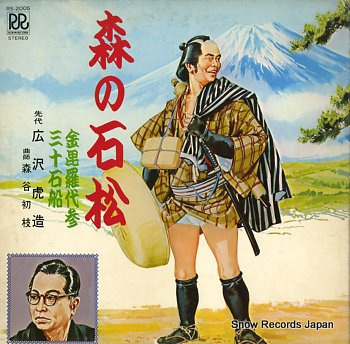Ichikawa Ebizo XI is a good friend of mine and a great Kabuki actor. He has a big secret. Ebizo keeps a dragon, and the dragon keeps growing.
The revelation came as I was having a conversation with Ebizo for a magazine article in a Tokyo hotel. Out of the blue, Ebizo mentioned in a casual and as-a-matter-of-fact manner that he was keeping a dragon with him.
The story went like this. Some time ago, Ebizo was attending a party. There was an elder man that Ebizo quite respected. When Ebizo looked at the man, there was a large dragon behind. Naturally, Ebizo was quite astonished. The man, looking at Ebizo's countenance, said dryly "Oh, do you see the dragon? It is standing just behind me, isn't it? Where you are looking at now, is the dragon's face. Do you see that? I'll tell you what. Bring a glass jar to this temple in the mountain. Normally, the master priest does not give away dragons to a first comer. But you may be different. He might give you a dragon."
So Ebizo went to this temple in the mountain. The head priest, after looking at Ebizo carefully, finally said that he might take back a dragon in the jar.
So Ebizo took a dragon in a jar back to Tokyo. As time passed, it grew bigger, and it came out of the jar. By the time I met with Ebizo, the dragon had become larger than himself.
As I listened to this story with amazement, Ebizo said to me, "just about where you are looking at right now, should be the dragon's head. Do you see that?"
I could not actually see anything, but I made a ambiguous response, partly to be diplomatic, but partly out of sincerity, as the dragon story made me think deeply.
From the scientific point of view, the whole story should be judged to be a fruit of illusion. A dragon is an imaginary animal. It does not "exist" as a physical entity.
But then there is a rich cultural history, in the far East, regarding the dragon. The dragon is a symbol of inspiration, aspiration, ambition, strength and energy. But tapping into the energy to be extracted from living with the imaginary animal, Ebizo is clearly becoming a larger figure as a Kabuki actor.
Another important point is that Ebizo is doing his day job well. Quite superbly, as a matter of fact. Once on stage, Ebizo's acting as a Kabuki actor is quite intensive, burning with energy, and has the elegance of a wild beast. Nobody questions that.
Some people, when possessed with a vivid imagination, stops functioning in their day jobs. They talk fanciful things, but does nothing. In such a case, the illusion loses its life, and begin to deteriorate.
Ebizo is different. Ebizo does not rely on his dragon. He uses his own body, practices, rehearses, thinks hard, and brings forth a wonderful Kabuki stage, moving the spectators. The dragon is then probably just a symbol of the excellence of Ebizo.
Ebizo keeps a dragon. And then he is a man with a practical sense. Ebizo is embodied. The combination of embodied practicality and the vivid imagination of a dragon is the chemistry behind the phenomenal great acting.

Ichikawa Ebizo.




















